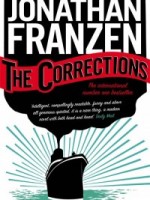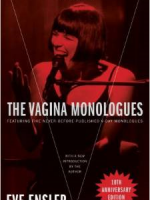(Published by Faber and Faber Ltd)
 |
The poet Sylvia Plath wrote only one novel – The Bell Jar. Its protagonist, Ester Greenwood, is a young woman who is an ambitious and promising writer.
Set in the 1950s, the first half of the book covers a month that Ester spends in New York as an intern for a women’s magazine playing the socialite, a position she wins through her writing. Despite being successful – gaining grants and having work published in magazines – she is fragile, questioning and unsure of her future.
Ester reflects on her relationship with her ex-boyfriend Buddy, who wants her to marry, settle down and live the life of a conventional wife – a suggestion she bucks at, proclaiming she will never marry. She wants more than the traditional role handed to a woman and puts herself under pressure to do something with her life even if she does not know what this is.
Her time in New York unsettles her and at the end of the stay she totally breaks down. After being attacked by her date she climbs on the roof of her hotel and casts each item of her wardrobe to the wind. Ester then returns home in a borrowed outfit that she refuses to take off or wash for weeks. When she finds out that she has not been accepted for a writing course she felt sure of, it is a blow to her already delicate state of mind. She refuses another position and lapses into a year ‘under the bell jar’.
The environment of the first half of the novel – living in an exciting city with other promising young women, going out to events, getting free gifts – is contrasted with the second half. This covers her year confined to mental institutions, and although she is living with a group of young women, her trips are now to a psychiatrist for electric shock treatments.
Retrospectively narrated by the central character, Ester’s voice is somewhat distant to the action, as if the speaker is looking at herself from above. She relates the story in a clear and dispassionate manner. It is with a certain disbelief and separateness that she recounts her experiences rather than seeking sympathy.
It is impossible to read this work without seeing it as semi-autobiographical. Indeed the passages on Ester Greenwood’s suicide attempts are all the more moving and poignant knowing of Plath’s own suicide in 1963.
The honesty is captivating. Ester’s decent into mental breakdown is told without dramatics and with such an air of inclusivity that you cannot help but identify with the protagonist. Her depression, her numbing anxiety, the “sour air” of the bell jar is related as if reported from another country. Mental breakdown and depression are shown as an ordinary illness. It is not implicit why this happens to Ester and not someone else – indeed you feel this could happen to anyone.
“I had hoped, at my departure, I would feel sure and knowledgeable about everything that lay ahead – after all, I had been ‘analyzed’. Instead, all I could see were question marks”.
I couldn’t put the book down. It was wonderfully written – exacting without superfluous curlicues and moving without being emotionally manipulating.
I can’t believe it took me so long to read The Bell Jar. I recommend you not wait. ![]()



